Rajasthan is well known for its number of deserts, vibrant culture, and magnificent forts, and it boasts some of India’s most unique and diverse national parks. The national parks in Rajasthan house everything from the majesty of the Bengal tiger to the endangered Indian bustard. Whether you are a wildlife enthusiast, a birdwatcher, or just looking for a serene getaway into nature, there’s hope in the national parks of Rajasthan. Herein comes a guide to ten of Rajasthan’s most spectacular national parks.
Top 10 National Parks In Rajasthan
Discover the untamed beauty of nature at these top 10 must-visit National Parks in Rajasthan:
1. Ranthambore National Park
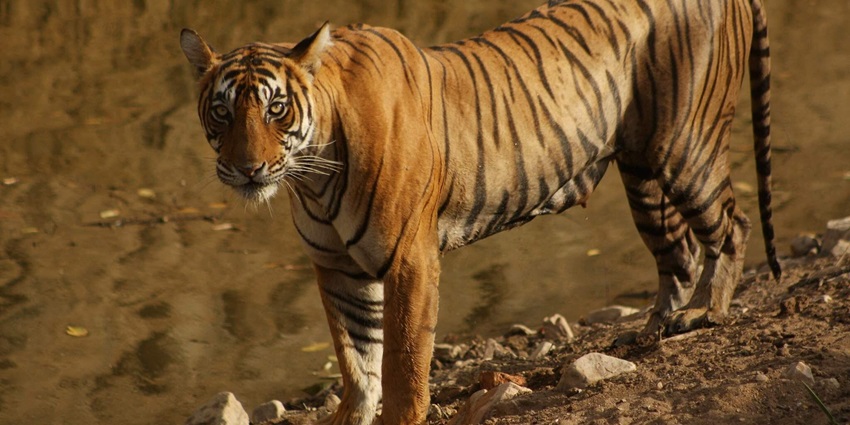
Photo: Asif N Khan / Wikimedia Commons
Ranthambore National Park is arguably the most famous among Rajasthan national parks, now primarily known for its growing population of Bengal tigers. It covers an area of 1,334 sq km and presents a marvellous panorama of the Aravali and Vindhya mountain ranges. Besides tigers, other wildlife that can be spotted here includes leopards, sloth bears, and many species of deer. Besides all these, the park houses the 10th-century Ranthambore Fort, making this site a blend of history and wildlife. Ranthambore Tiger Safari Tours entices many tourists from all over the world.
Location: Sawai Madhopur, Rajasthan
Entry Fee: ₹100 for Indians, ₹1,000 for foreigners
Timings: 6 AM – 10 AM, 2:30 PM – 6:30 PM
Suggested Read: Things To Do In Sawai Madhopur
2. Keoladeo National Park (Bharatpur Bird Sanctuary)
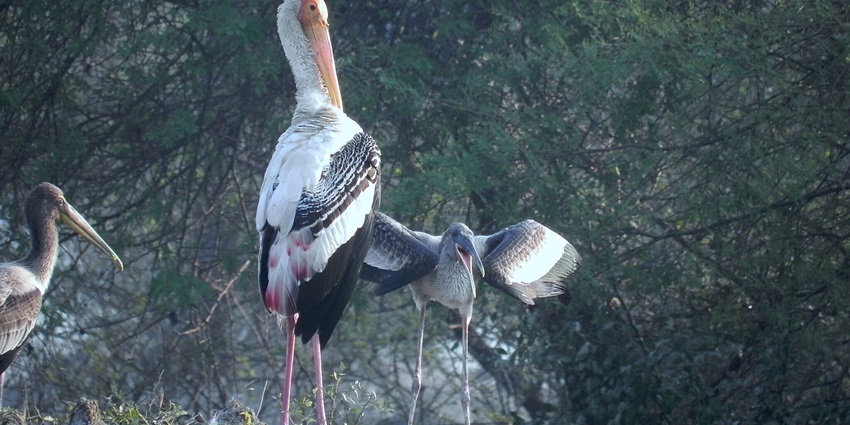
Photo: Nikhilchandra81 / Wikimedia Commons
Keoladeo National Park is a haven for bird watchers and is one of the top national parks in Rajasthan. Enlisted as a UNESCO World Heritage Site is the best national park in Rajasthan. Stretching over 29 square kilometres, it is a dwelling place for over 370 species of birds, including the scarce Siberian crane. Also, the park acts as a Herculean breeding ground for many residents and migratory birds. Besides avian fauna, Keoladeo also hosts other animals like nilgai, wild boar, and most species of reptiles. This tranquil place, rich in biodiversity, makes it one of the best national parks in Rajasthan.
Location: Bharatpur, Rajasthan
Entry Fee: ₹75 for Indians, ₹500 for foreigners
Timings: 6 AM – 6 PM
3. Desert National Park
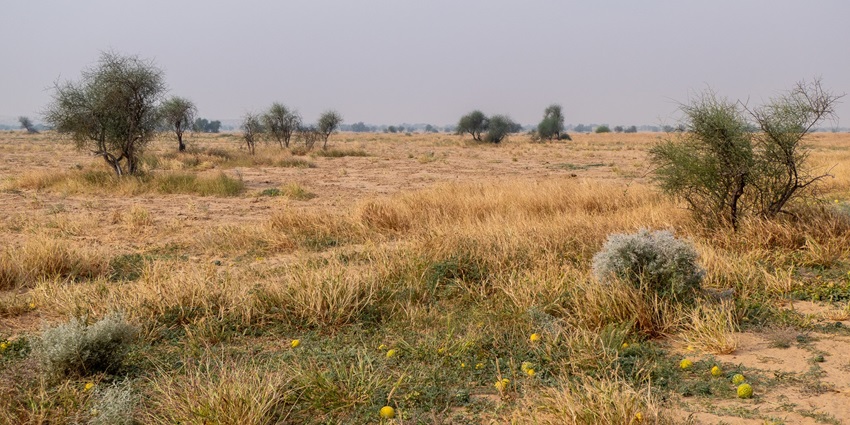
Photo: Mike Prince / Wikimedia Commons
The Desert National Park, one of the famous national parks in Rajasthan, spans 3,162 square kilometres. Nestled in the Thar Desert, it showcases the beauty of arid desert ecology, featuring vast sand dunes, rocky outcrops weathered over millions of years, and salt lake beds. The park is home to the critically endangered Great Indian Bustard, along with wildlife like blackbuck, desert fox, and chinkara. Desert safaris are a popular way to explore this unique landscape, offering a glimpse into the flora and fauna that thrive in such harsh conditions.
Location: Jaisalmer, Rajasthan
Entry Fee: ₹100 for Indians, ₹400 for foreigners
Timings: 10 AM – 5 PM
Suggested Read: The Top Things To Do In Sikar
4. Sariska Tiger Reserve
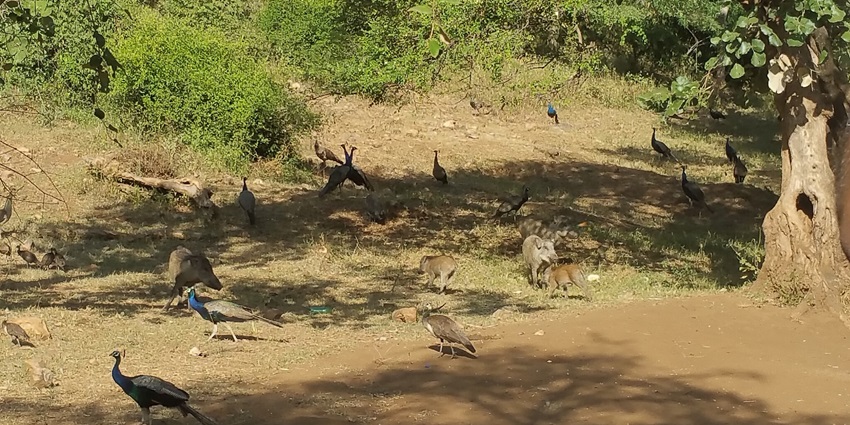
Photo: Rprishi / Wikimedia Commons
The Sariska Tiger Reserve is situated amidst the Aravalli hills, covering an area of 881 square kilometres. It forms one of the major tiger reserves of Rajasthan and is inhabited by the famous Bengal tiger. Along with tigers, the other predators of this park include leopards, striped hyenas, and several avifauna species. The topography here consists of dry deciduous forests, grasslands, and rocky hills, thus making it scenic for wildlife viewing. The park has a history intertwined with the 17th-century Kankwari Fort within its precincts, thereby helping to add an element of history to the safari experience.
Location: Alwar, Rajasthan
Entry Fee: ₹100 for Indians, ₹500 for foreigners
Timings: 6 AM – 9 AM, 3 PM – 6 PM
5. Mount Abu Wildlife Sanctuary
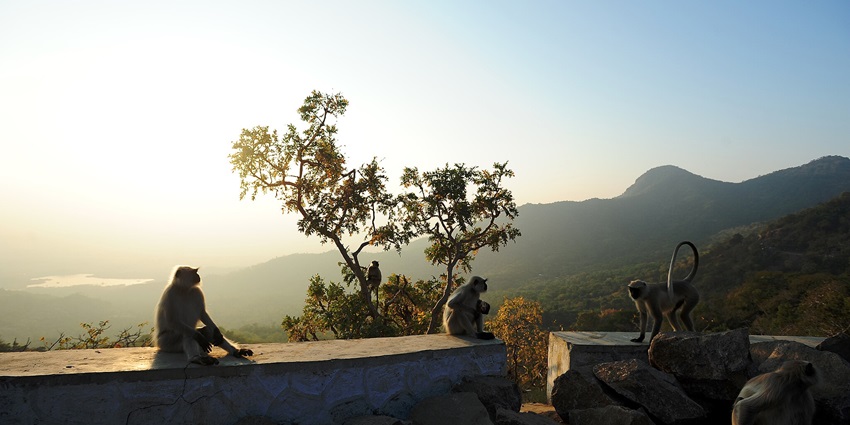
Photo: Sampa Guha Majumdar / Wikimedia Commons
Covering an area of 288 square kilometres, the Mount Abu Sanctuary is located in the only hill station in Rajasthan. Representatives of flora and fauna, including leopards, sloth bears, and sambhar, can be found in this sanctuary. The cool climate and lush green surroundings make the presence here quite appealing, both to the tourists and to the wildlife lovers. A trek inside the sanctuary offers breathtaking and panoramic views of surrounding valleys, besides offering spotting of many bird species. It is a haven for birdwatchers and quite popular amongst nature photographers.
Location: Mount Abu, Rajasthan
Entry Fee: Free
Timings: 9 AM – 5:30 PM
Suggested Read: Gajner Wildlife Sanctuary
6. Kumbhalgarh Wildlife Sanctuary
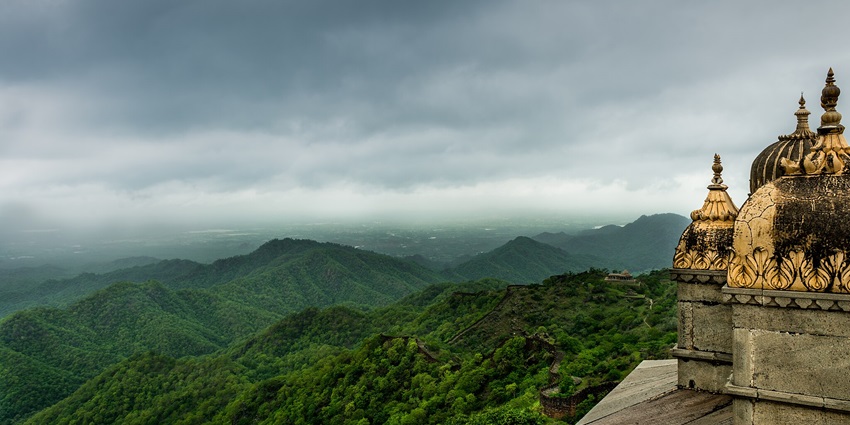
Photo: Ashvij Narayanan / Wikimedia Commons
Kumbhalgarh Wildlife Sanctuary, spanning 578 square kilometres at the foothills of the Aravalli range, is nestled near the historic Kumbhalgarh Fort. Despite its smaller size, the sanctuary is home to various species like leopards, wolves, and hyenas. It also attracts a wide range of bird species, with peacocks, partridges, and pigeons being commonly spotted. Kumbhalgarh offers excellent trekking and jeep safari opportunities, providing a captivating glimpse into Rajasthan’s forest beauty and wildlife, making it a must-visit for nature and adventure enthusiasts.
Location: Rajsamand, Rajasthan
Entry Fee: ₹100 for Indians, ₹300 for foreigners
Timings: 6 AM – 6 PM
7. Mukundara Hills National Park
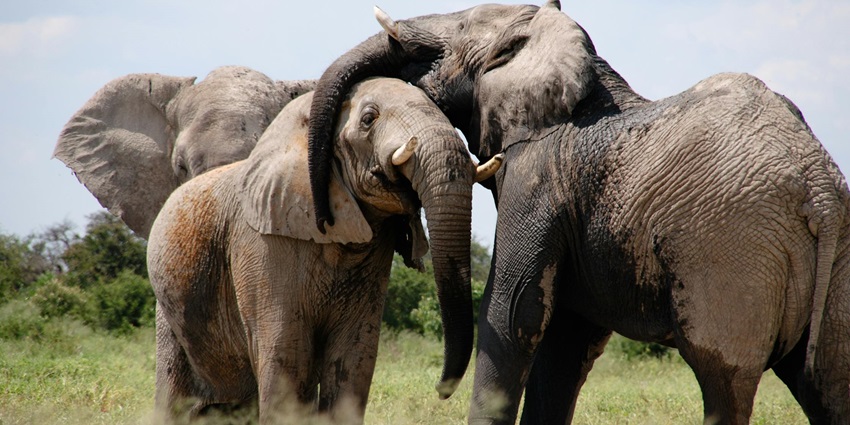
Photo: Pixabay / Pexels / Image For Representation Only
Spread over an area of 759 square kilometres, Mukundara Hills National Park, a popular national park in Rajasthan, is a land of rugged topography combined with varied ecosystems. It would provide shelter to tigers of Bengal, leopards, and many other species of deer. The rivers Chambal and Kali Sindh run through the park and enhance its pictorial beauty. Mukundara covers the place as one of the lesser-known national parks in Rajasthan, which presents a perfect vision for tourists to go and experience a quiet, remote part of the state’s wilderness.
Location: Kota, Rajasthan
Entry Fee: ₹50 for Indians, ₹500 for foreigners
Timings: 7 AM – 5 PM
Suggested Read: Explore Dolls Museum Jaipur
8. Tal Chhapar Wildlife Sanctuary
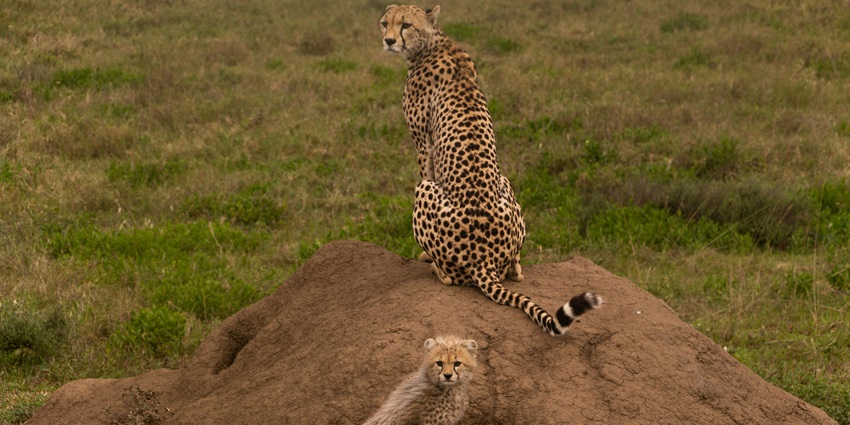
Photo: Joe-Francis Kiaga / Pexels / Image For Representation Only
Tal Chhapar Wildlife Sanctuary, one of the best national parks in Rajasthan, is famous for its large-sized population of blackbuck. It falls in the Shekhawati region. The large open grasslands of Tal Chhapar Sanctuary are ideal for antelope. Along with many other species, this place also acts as a home for many bird species. Tal Chhapar is an ideal spot among the birdwatchers, cranes, harriers, and kestrels are not an uncommon sight here. It provides a unique opportunity to see Rajasthan’s wildlife in a grassland ecosystem-a sight different from the more famous desert landscapes of the state.
Location: Churu, Rajasthan
Entry Fee: ₹50 for Indians, ₹200 for foreigners
Timings: 6 AM – 6 PM
9. Sita Mata Wildlife Sanctuary
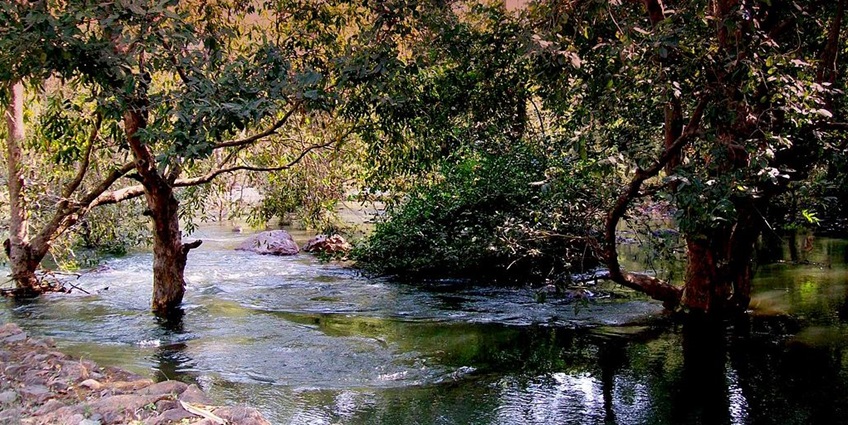
Photo: Hemant Shesh / Wikimedia Commons
Sita Mata Wildlife Sanctuary extends over an area of 423 square kilometres and is situated amidst the district of Pratapgarh. Thick forests of deciduous blanket harbours Leopards, Flying Squirrels, and Spotted deer, among a long list of animals. The Sita Mata River flows all over the sanctuary, adding to the heavy green landscape; thus, attracting several species of birds home. The name bears that of the Hindu goddess Sita, steeped in mythology, and the sanctuary is not short on either natural beauty or cultural claims to fame.
Location: Pratapgarh, Rajasthan
Entry Fee: ₹50 for Indians, ₹300 for foreigners
Timings: 6 AM – 6 PM
Suggested Read: Ramsagar Wildlife Sanctuary
10. Bhainsrorgarh Wildlife Sanctuary
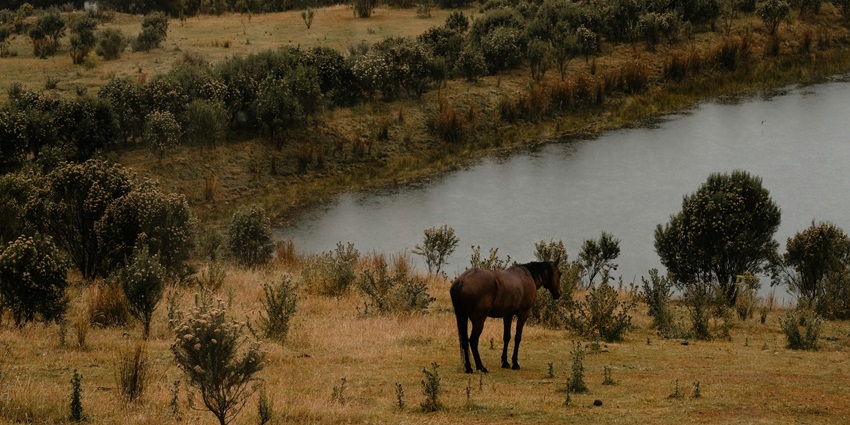
Photo: Valeriia Miller / Pexels / Image For Representation Only
Bhainsrorgarh Wildlife Sanctuary acts as a protective area for wildlife, spread over 229 square kilometres in the southeastern part of Rajasthan. More importantly, it is located in a very picturesque setting along the Chambal River. The animals within include leopards, jackals, and various reptiles. The river attracts a lot of migratory birds, so it is one of the best places for birdwatching. At the top of the cliff overlooking the river stands an ancient fort known as Bhainsrorgarh Fort, which adds to the historical appeal of this sanctuary.
Location: Chittorgarh, Rajasthan
Entry Fee: ₹100 for Indians, ₹400 for foreigners
Timings: 6 AM – 6 PM
National Parks in Rajasthan offer a rich tapestry of wildlife and landscapes, from the arid deserts of the Thar to the lush green hills of Mount Abu. Whether you’re spotting Bengal tigers in Ranthambore or blackbucks in Tal Chhapar, these parks provide a unique opportunity to experience the beauty and biodiversity of the region. Book your trip with TripXL and embark on an unforgettable adventure through the state’s spectacular national parks.
Cover Photo: BlueOrange Studio / Shutterstock


 WhatsApp
WhatsApp
 Twitter
Twitter









